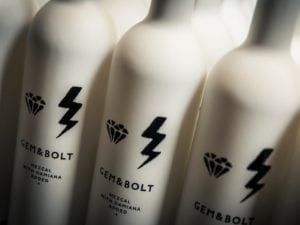Big Alcohol Targets Millennials With “Wellness” Products, Youth-Specific Marketing
Millennials spend less money on alcohol than previous generations, according to an analysis of the 2017 Bureau of Labor Statistics’ Consumer Expenditure Survey.
Millennials are showing trends of reducing or altogether stopping alcohol use. This is specifically true of beer. The trend is in line with millennials switching to a more healthy lifestyle overall. But the alcohol industry is gearing up to capitalize even on this trend – with “new” products and more youth-focused alcohol marketing.
In an attempt to attract millennials, some brands are marketing their alcohol as wellness drinks. Different products are emerging that claim health benefits – from “wellness beers” meant for athletes to paleo-friendly and keto-friendly natural wines.
It is no surprise that Big Alcohol is attempting to peddle an unhealthy substance using the health conscious trend among millennials.
…among those most willing to exploit our most selfish, and self-serving philosophies is the alcohol industry, which is now trying to brand beer, wine and liquor as “wellness” products,” writes Jaya Saxena of Eater.
Big Alcohol wants to position their products as natural part of a healthy lifestyle
Though there have been “lite” beers for decades, Corona and Dogfish Head have recently launched new low-calorie beers, and Heineken is leaning heavily into marketing their non-alcoholic beer. To lure back younger customers, alcohol brands are turning to “wellness,” arguing that their products are a natural part of any healthy, balanced diet.
For instance, an artisanal mezcal brand GEM&BOLT, calls its alcohol a “clean spirit,” claiming the ingredient damiana can regulate mood, act as a natural anti-depressant, and improve overall sexual well-being. Despite the claim damiana has scarce scientific evidence on causing these effects. Promoting any beverage which contains alcohol – a proven depressant – as an anti-depressant and mood regulator is abhorrent.
Another example is Dry Farm Wines, a Napa Valley company, that claims to offer wines meeting a “strict standard of health.” They are marketed as sugar-free, paleo-friendly, keto-friendly, and low carb-friendly.
Another questionable claim made by the company is that the low alcohol content in their wine gives “a cleaner buzz”. Notably, there is no scientific research that backs up the claim that consuming natural or organic wine can make for less severe hangovers.
Alcohol brands are also marketing drinks not only as something to share with friends, but as an important tool of workout recovery. For example the Sufferfest Beer Company, now owned by Sierra Nevada Brewing Company, targets athletes by promoting its beers as “recovery drinks”. Sierra Nevada Brewing Company is the 7th largest beer maker in the U.S.
Big Alcohol disregarding marketing guidelines
The Alcohol and Tobacco Tax and Trade Bureau (TTB), which regulates alcoholic beverages among other industries, does include specific references to the use of health claims and health-related statements in their regulations.
The TTB alcohol advertising regulations ban health related statements for alcohol which suggest a relationship between use of any alcohol or substance in alcohol and health benefits or effects on health. Included are both “specific health claims” as well as “general references” to alleged health benefits or effects on health.
Evidently Big Alcohol is disregarding the regulations and getting away with it by marketing alcohol as “healthy” or promoting “wellness”.
It is a fact that consuming any amount of alcohol is hazardous to health – as an increasing body of science shows. Regardless of how Big Alcohol tries to spin it, science proves that alcohol is bad for health.
The widely held view of the health benefits of alcohol needs revising, particularly as improved methods and analyses continue to shed light on how much alcohol contributes to global death and disability,” said Max Griswold, the lead author of a 2018 study published by The Lancet that looked at alcohol use and alcohol-attributable deaths and disability.
Pernod-Ricard teams up with youth-focused ad agency
As The Drum reports, Brand Labs the new in-house ad agency of Boiler Room was launched recently and their first client is Pernod-Ricard – one of the largest alcohol producers in the world. Boiler Room is a global digital music platform and Brand Labs is its own youth-focused agency.
The alcohol giant and the new ad agency are partnering for the Boiler Room Festival — a four-day music event taking place in London’s Copeland Park which will be broadcast live.
Through this new collaboration, the alcohol giant will be able to reach more young people and receive profound insights about the young audience that Boiler Room has cultivated. In addition, the liquor giant receives access to Boiler Room’s global network of music artists, DJs, producers, filmmakers and other creatives. Boiler Room reaches an audience of over 200 million each month, via social media and its own channels – and this audience will be available for Pernod Ricard to target through the new collaboration.
This is a clear example of the alcohol industry aggressively trying to target young people and to link their products to the lifestyle of the youth of the 21st century. With youth moving to a more health-conscious, including alcohol-free, lifestyle this partnership is evidently a means for Pernod-Ricard to both gain deeper insight about the target group and promote their products according to the preferences of millennials.
The move comes in a context of alcohol use at festivals receiving increasing attention for the problems it causes.
Alcohol Intoxication and Support for Restrictive Alcohol Policies in Music Festivals
